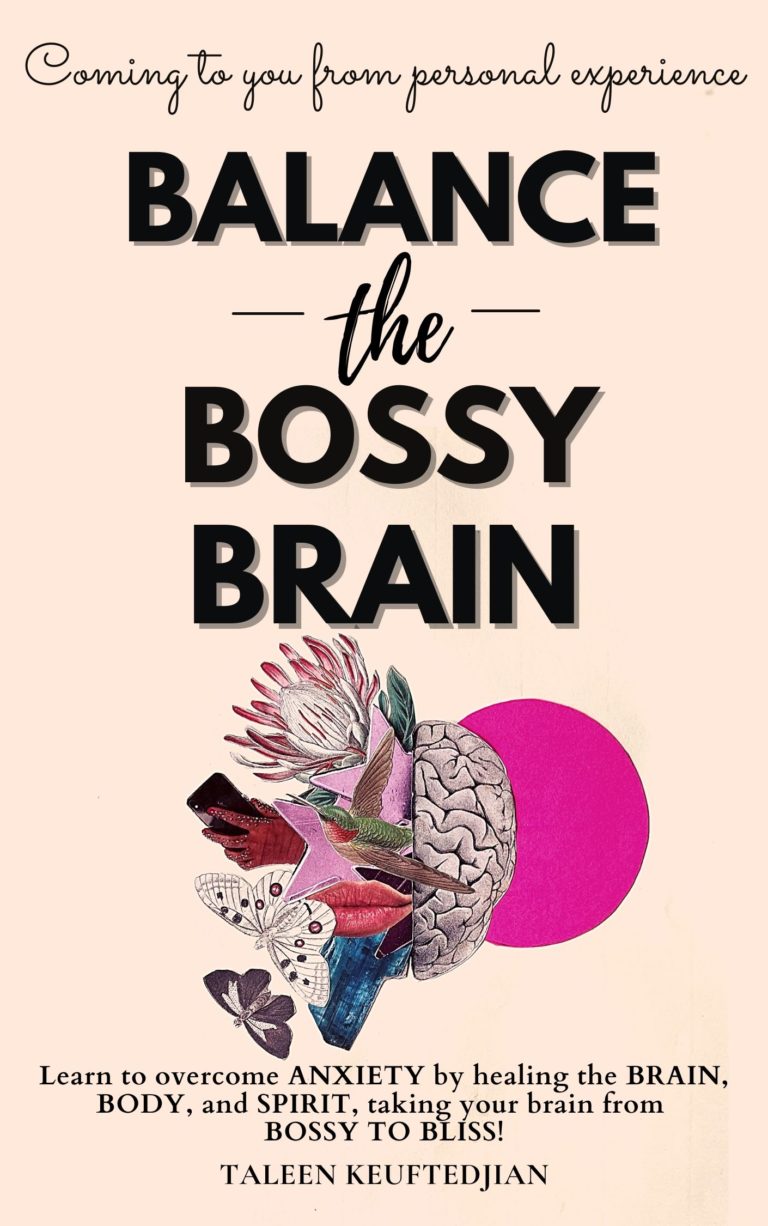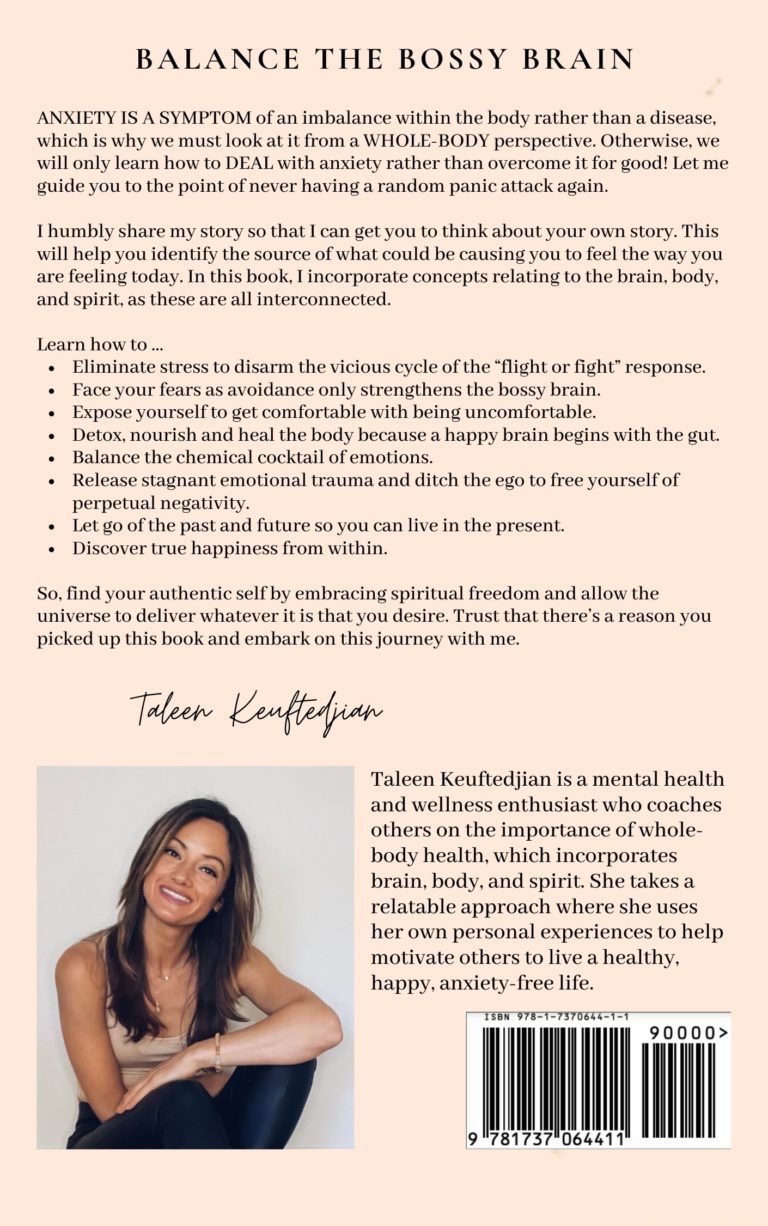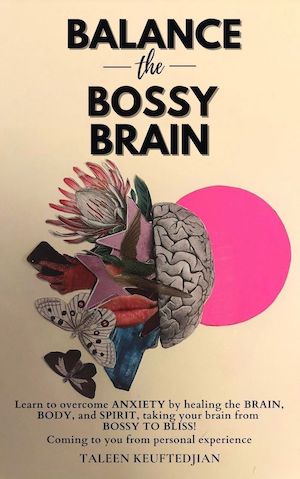Balance the Bossy Brain: Learn How to Get Out of Fight Or Flight Mode
Is Your Nervous System Stuck in Fight or Flight Mode?
Most people will experience some form of anxiety throughout their lifetime, and the culprit is often due to stress. Modern-day living can be filled with stress related to work, relationships, politics, societal pressure, or any other tough times you may be experiencing. The goal of this article is to help you learn how to get out of fight or flight mode.
Learn How To Exit Fight or Flight Mode
Keep in mind that the #1 way to calm anxiety is switching on your relaxation response as soon as possible. This is why it’s important to learn how to exit fight or flight mode when you feel the symptoms coming along. If you allow yourself to freak out and focus on the symptoms you’re experiencing, then you’ll expose yourself to more panic and therefore, more anxiety. Trust me, I know what you might be going through. I’ve experienced chronic anxiety firsthand for most of my youth and well into my 20s. It was not until I hit rock bottom at 27 years old that I was able to turn things around. I go into detail about my experience with anxiety and how I overcame it in my book, Balance the Bossy Brain. It’s a relatable guide to overcoming anxiety by finding the root cause, and bringing the brain, body, and spirit back into balance.
Many of us know how challenging it may feel to learn how to get rid of fight or flight anxiety, especially during rough times. So, here are some tips to help you gain a little more control.

How to Get Rid of Fight or Flight Anxiety
#1 Relax
If your nervous system is stuck in fight or flight mode, then calming yourself down is the most important thing you can do when you’re experiencing anxiety. I know from personal experience that anxiety comes in stages and any additional stress can raise your anxiety levels quickly. If you’re currently experiencing anxiety, find a quiet place to relax. Avoid loud groups of people, turn off the TV and music, or anything else that is overstimulating.
#2 Breath
Try to take deep long breaths to supply plenty of oxygen to your brain. When we experience anxiety, we shift to shallow breathing which robs our brain of vital oxygen. This lack of oxygen is what brings on that sense of unreality related to anxiety. Taking long deep breaths will also help promote relaxation, which is exactly what you need if your nervous system is stuck in fight or flight mode.
#3 Avoid Stimulants
If you’re wondering how to exit fight or flight mode, then steer clear of stimulants like coffee, cigarettes, and drugs. These are some of the biggest culprits when it comes to increasing stress hormones in your body. I can’t tell you how many times I’ve had terrible panic attacks after drinking a cup of coffee. I’m a huge coffee lover, so giving up coffee was a huge deal for me. If you suffer from anxiety, then I suggest giving up your morning cup of coffee. Your mind and body will thank you for it, I promise!
#4 Reduce Stress
Feeling as though your nervous system is stuck in fight or flight mode? Well, take a deep breath and know that this stress response will eventually dissipate and you will feel normal again. It’s extremely important to stay calm because stress is by far the biggest culprit of anxiety. When we’re stressed out, our pupils dilate, our heart pounds faster, our muscles tense up, and we breathe quicker. This bodily response is there to save us from a life-threatening situation. The only problem is that modern-day emergencies don’t require these bodily reactions. What happens instead is that our body becomes overwhelmed with stress hormones until our liver can process and eliminate them. It’s these accumulated stress hormones that give you that anxious feeling and keep your nervous system stuck in fight or flight mode.
#5 Stop Multi-Tasking and Tackle Each Task One at a Time
Make a list of all the things that could be causing your anxiety. Prioritize each item on your list from most important to least important. Focus on tackling the most important tasks one at a time. Cross each task off your list once it’s been completed. Organizing your thoughts on paper can help calm anxiety by clearing the clutter in your mind.
#6 Try to Rationalize Your Thoughts
Try to pinpoint the thoughts that are contributing to your anxiety. Make a list of all your findings and ask yourself if what you’re worried about is legitimate.
Here are some questions you can ask yourself to determine how serious your worries are:
- Does worrying about it change the outcome?
- Is it out of my control?
- Is it causing me immediate harm?
- Will I be thinking about this tomorrow or 2 years from now?
If you answer “NO” to these questions, then try to put these worrisome thoughts behind you.
Think of Eckhart Tolle’s quote, “This, too, will pass” meaning that every emotion (good or bad) is only temporary, and will eventually pass.
#7 Self-Talk
Self-talk is a great way to distract yourself while rationalizing the fears you may be experiencing. In the past when I’d feel a panic attack coming along, I would go to the bathroom and look at myself in the mirror. I would talk to myself, reason with myself, and even laugh at myself. Honestly, laughing at myself worked wonders because I was able to turn something scary into something lighthearted.
#8 Exercise
If you’re trying to learn how to exit fight or flight mode, then exercise will be your sweet escape. Yes!!! Exercise will be your best friend if you have anxiety. It helps pump all those happy chemicals back into your brain, which is exactly what someone with anxiety so desperately needs. If you’re not a fan of exercise, then try your best to take short walks. This is a great way to unwind your nervous system stuck in fight or flight mode because it gives you a chance to clear your thoughts, get fresh air, and escape your current situation.
#9 Immerse Yourself in Nature
If you’re trying to learn how to get out of fight or flight mode, then nature can be your savior. Being out in nature is peaceful and healing for the mind, body, and soul. There’s something special about the stillness and authenticity of the outdoors. Calm your anxiety by spending as much time in nature as possible. A lot of us spend most of our day indoors on our computers. The pandemic has forced a lot of companies to adopt a hybrid or remote work schedule. Take advantage of this time by working outdoors if possible. Working outdoors can also help promote relaxation if you’re experiencing anxiety at work.
#10 Talk to Others About Your Anxiety
Especially with people who experience anxiety themselves or who are very understanding of what you’re going through. During my roughest times, I found it very helpful talking to others about my anxiety. What I found extremely helpful was reading blogs written by other anxiety sufferers and how they were dealing with it. Knowing that you’re not alone will help provide comfort while giving you a sense of hope.
#11 Eat Something
When you’re fasting or have an empty stomach for too long, your brain will start to send panic signals to your body. This reaction triggers the release of stress hormones, thereby leaving our nervous system stuck in fight or flight mode. This is why some people get nervous or jittery when they are hungry. Make sure to maintain healthy blood sugar levels to avoid anxiety related to eating.
#12 Distract Yourself
Make a phone call, start a conversation, go for a run, read a book, or turn the music up really loud and dance like a goofball. Distracting yourself can help alleviate anxiety by redirecting your attention to something else. Anxiety can cause your thoughts to spiral out of control, which is why redirecting your attention is so important. The more you focus on your anxious thoughts, the worse they’ll get. That’s why focusing on something else can help you forget about what you were worried about in the first place. Also, while you’re distracted, the stress hormones will eventually leave your body thereby allowing you to exit fight or flight mode. Win! Win!
Anxiety and Stopping Panic Attacks
Learning how to calm anxiety may involve trial and error. It’s important to try new tools and techniques while you’re experiencing anxiety in order to learn what works best for you. I hope this article on how to get out of fight or flight mode has helped you. Be strong, stay confident, and know that you will get through it!
Writer Bio

Taleen Keuftedjian is a mental health and wellness enthusiast who coaches others on the importance of whole-body health, which incorporates brain, body, and spirit. She takes a relatable approach where she uses her own personal experiences to help motivate others to live a healthy, happy, anxiety-free life.
Check out my book!
A relatable guide to overcoming anxiety by finding the root cause, and bringing the brain, body, and spirit back into balance. Coming to you from personal experience!

~ Balance the Bossy Brain





